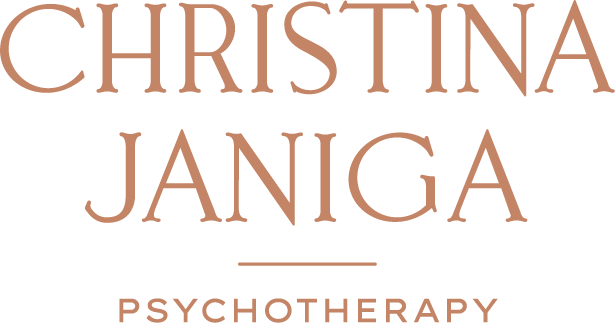Christina Janiga Psychotherapy - Blog
This blog is not a substitute for therapy, but provides evidence-based education for the purposes of self-help and information
Self-care for Therapists and Helping Professionals: How to prevent burnout and heal with EMDR Group Therapy
You chose this profession because you care deeply about others. But the very work of supporting people through their struggles comes with its own risks. Over time, many helping professionals – psychotherapists, counsellors, nurses, social workers, and first responders – find themselves carrying the weight of others’ pain. Without intentional self-care, that weight can grow into burnout, compassion fatigue, or even symptoms of secondary trauma (CMH Network, 2020; Newell & Nelson-Gardell, 2014).

The good news? Research shows that with the right practices and supports, we can protect our well-being and continue to thrive in this work.
The Risks We Face as Helping Professionals
Studies show that helping professionals are a higher risk of health challenges compared to non-helping fields (Kósa et al., 2024). Emotional exhaustion, disrupted sleep, and stress-related health concerns are common. Beyond burnout, many experience secondary traumatic stress (STS) – when exposure to clients’ trauma leads to flashbacks, anxiety symptoms, or intrusive thoughts similar to post traumatic stress disorder (PTSD) symptoms. Others feel the pull of compassion fatigue, where empathy begins to feel draining instead of fulfilling. Left unchecked, these patterns can affect not only your personal health but also your presence and effectiveness with clients.
Why It’s Hard to Practice Self-Care as Helping Professionals
If you’ve struggled to prioritize yourself, you’re not alone. Many of us face barriers: heavy caseloads, time pressures, feelings of guilt, or the belief that “being strong” means pushing through. Sometimes organizations don’t provide the space or resources needed to make self-care realistic. And while some strategies help, they don’t always touch the deeper layers of stress or trauma that come from years of exposure to others’ pain.
Some of the hardest barriers stem from workplace culture and organizational structure. Again, without supportive supervision and environments that value self-care, helping professionals tend to dismiss their own stress or assume invulnerability (CMH Network, 2020). Heavy caseloads, lack of breaks, unclear expectations about downtime – all of these erode even the best personal self-care effort.
What the Research Says About Self-Care for Helping Professionals?
Self-care for therapists and helping professionals isn’t just about bubble baths or the occasional day off. In fact, in most of our regulatory bodies, self-care is an ethical and professional necessity for helping professionals. Effective self-care strategies for therapists and caregivers include (All Things Possible Wellness Center, 2019 ; CMH Network, 2020) :
- self-awareness and mindfulness: Regularly checking in with your emotions and stress levels.
- Physical care: sleep, movement, nutrition, and rest.
- Psychological care: personal therapy, health boundaries, and knowing when to step back
- Connection and Support: engaging in peer consultation, mentorship, and relationships outside of work
- Meaning and purpose: Staying connected to the values and mission that brought into this profession.
What’s striking is that those who consistently practice self-care report higher well-being and resilience. The more you engage in it, the more you realize its value.
Supervision For Therapists and Helping Professionals
Recent practical guides reinforce that self-care must happen not only at the individual level, but also be embedded in professional supervision and workplace culture (CMH Network, 2020). For instance, helping professionals are encouraged to self-monitor (regularly check in with themselves: emotional state, fatigue levels, stress), to use self-care assessment tools, and to benefit from supportive supervision that helps leaders model self-care, recognize when staff are overwhelmed, and promote self-care as a team value. Structuring the work environment – reasonable workloads, regular breaks, peer-to-peer support – has been shown to sustain self-care.
How EMDR Group Therapy Can Help Helping Professionals
This is where EMDR therapy for helping professionals comes in. EMDR (Eye movement desensitization and reprocessing) is a trauma-focused therapy that helps the brain process distressing experiences so they no long feel overwhelming (Shapiro, 2018; EMDRIA, 2023). For therapists, counsellors, and caregivers, EMDR can address the effects of secondary trauma, intrusive memories, or chronic stress responses.
Participating in an EMDR group designed specifically for therapists and helping professionals offers unique benefits:
- a safe, supportive space with peers who understand the challenges of this work
- Relief from the emotional weight of client-related stress
- A structured, evidence-based approach to building resilience
- Accountability to prioritize your own well-being

Group settings, especially ones using EMDR therapy, can mirror many of the supportive structures literature recommends for self-care: peer-to-peer support, mutual monitoring, and shared recognition of stress. In EMDR group therapy, you’re in a space with others who have similar professionals roles – you can learn to notice when you’re slipping, support each other, and maintain accountability for self-care. It’s a practical way to bring structure and environment that values self-care into your professional life.
Conclusion & Invitation
As therapists and helping professionals, we often remind others that they cannot pour from an empty cup. The same truth applies to us. If you’re noticing the weight of this work catching up to you, there are ways to restore balance and strength. Our EMDR therapy group for therapists and helping professional is designed to support you in processing what you carry, reconnecting to your purpose, and sustaining your career with greater ease.
If you’re ready not only to protect your capacity for this work but to join a community that truly supports it – where supervision is encouraged, shared learning and mutual care are integrated – then our EMDR Therapy Group for Therapists and Helping Professionals may be what research suggests is essential. This isn’t just self-care in isolation – it’s sustainable self-care, in line with what modern guidelines recommend: assessing, structuring, supporting, and healing together.
Learn More and Join us here: Therapists & Helping Professionals Group
About The Author
Christina Janiga, BSc, MACP, RP is a registered psychotherapist providing in person and virtual psychotherapy and therapy intensives in Burlington, ON and across Ontario. She is a Clinical Supervisor, Certified EMDR therapist, and a EMDR Consultant. She is trained in multiple modalities of trauma-focused healing to best support individuals who are looking to feel better faster.

